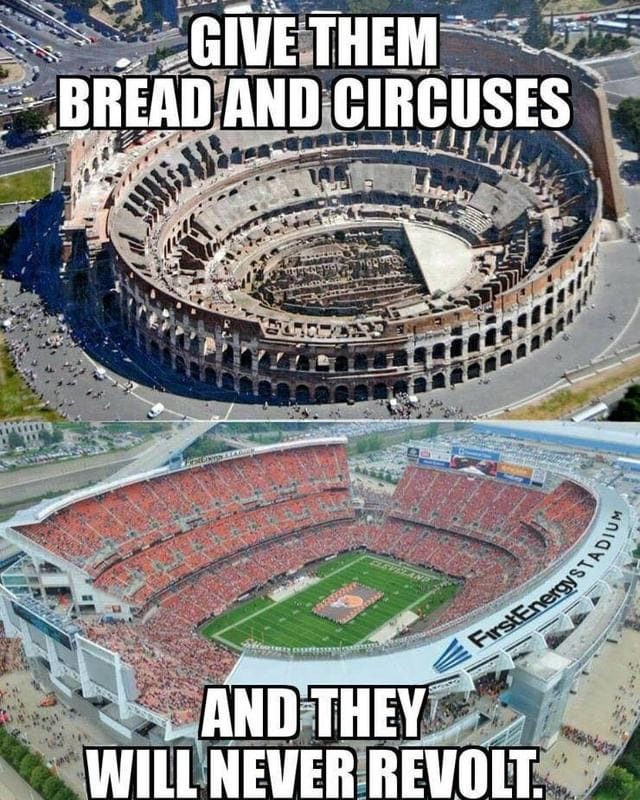Why we can’t have nice things, like democracy or human rights
Americans watch football, ignoring global resistance to Washington’s empire
This week, nearly 124 million people tuned in to watch the Super Bowl, and a dramatic comeback by Kansas City to overcome San Francisco not for the first time. Meanwhile, Washington’s global military industrial complex suffered not only continued military setbacks from Ukraine to Gaza, but also a remarkable electoral defeat at the hands of the people of Pakistan.
Guess which set of events prompted more observations from U.S. media sources?
If people in a poor, marginalized country can see through the machinations of their own military and media to boldly seek their own liberation, why can’t Americans do the same?
Embedded in the answer is a revelation of crises spanning, journalism, politics, democracy, and media. It implicates not only the military industrial corruption that Washington exports around the planet, but also the complicity of journalists and editors who mistake the values of their own profession, prioritizing the promotion of entertainment before the public accountability to which their profession is ethically committed.
What we watch
Super Bowl LVIII saw the Kansas City Chiefs triumph over the San Francisco 49ers in a dramatic game decided in overtime. With nearly 124 million live viewers, it was nearly the most widely watched broadcast in history. The only event ever watched by a larger live audience was the moon landing in 1969.
Before diving in, it’s worth observing the course of the game itself, and a pattern that has seemed to emerge between the two teams that played it.
This is not the first time that the 49ers have lost to the Chiefs in the Super Bowl. Four years ago, the Chiefs came from behind in the fourth quarter to score 21 unanswered points, beating the 49ers 31-20.
[I]t’s tough not to observe the expression of karma evident in the team choking repeatedly on national television after cutting quarterback Colin Kaepernick in 2020 for the crime of silently and respectfully dissenting from continuing patterns of murderous state violence.
This past weekend, the Chiefs again came from behind to beat San Francisco, which led 10-3 at halftime and 19-16 with under two minutes remaining in the game. Kansas City’s field goal in the final seconds of the game forced overtime, before a three-yard touchdown pass with just three seconds left in overtime sealed the Chiefs’ third NFL championship in five years.
San Francisco not only squandered leads in both Super Bowls, but also committed a series of “self-inflicted wounds” that make this past weekend’s an especially stinging defeat for 49ers fans.
What most forgot
Having left San Francisco to recover my life from a public character assassination orchestrated in 2020 to neutralize the threat I once posed to the city’s political establishment, I must confess to feeling no shortage of schadenfreude following the 49ers’ loss.
From my vantage point, it’s tough not to observe the expression of karma evident in the team choking repeatedly on national television after cutting quarterback Colin Kaepernick in 2020 for the crime of silently and respectfully dissenting from continuing patterns of murderous state violence. To his inestimable credit, Kaepernick has gone on despite being blacklisted by the NFL to establish a prolific career as a philanthropist and public figure whose voice and interests reach far beyond sports.
Setting Kap himself aside for a moment, there’s some irony to San Francisco suffering repeated defeats in the Super Bowl. First, the city is home to the most dense concentration of millionaires and billionaires on the planet. While New York and Hong Kong are both home to more billionaires, each of those cities’ populations dwarf San Francisco’s by an order of magnitude. One might take some satisfaction in a smug city run by tech capital failing to translate its preposterous wealth into victory on the football field.
More sharply, however, the juxtaposition between Kaepernick’s blacklisting and San Francisco’s Super Bowl loss is even more laden with irony than most observers realize. When Kap took a knee to protest police violence, he did so in a city that has managed to drive out approximately 75% of its once substantial Black population over the past generation. Despite its progressive reputation, San Francisco has so long been besieged by racism that James Baldwin produced a documentary film about specifically that in 1964. My own experience running for Congress forced me to confront it more squarely then I would have ever hoped.
No city as racist or ignorant as San Francisco deserves to win national championships.
What they show
Beyond the drama offered by the Super Bowl, its public coverage offers a straightforward reflection of how journalism has failed the public, as well as its own values.
Journalism is ethically committed to informing the public about issues of public concern, and ensuring transparency and public accountability. That’s the reason why the First Amendment protects, among other things, freedom of the press.
Every one of the thousands of articles and broadcasts published before, during, and since the Super Bowl ignored those goals entirely. What accountability is promoted by analyses of football?
Instead, each of those stories represented corporate propaganda promoting a sports league insulated by a corrupt Congress from long established antitrust laws that restrain most other industries. In other words, journalists—by the thousands—abandoned their mission to support public accountability to instead reinforce the unaccountability of corporate corruption that in turn continues to rely on bipartisan political corruption in Washington.
The work of sports writers is the equivalent of product reviews comparing brands of shampoo.
Even if sports leagues had not been insulated from antitrust laws by corrupt members of Congress, sports “journalism” would remain, at best, a distraction from real journalism reporting on issues that actually influence the future. But to describe sports “journalism” as a mere distraction mistakes how much coverage of sports, fashion, and entertainment dominates the American media landscape. It vastly outshines and obscures real reporting on matters of urgent interest to the entire globe.
What they missed in the past
For the last 75 years, the United States has been waging a relentless war on countries across the global South to force their natural resources onto international markets, engineer a preventable climate catastrophe, and degrade human rights, as well as the human rights institutions that America fought a World War to establish in the last century.
That pattern continues today—not only from Vietnam to Iraq, and more recently from Ukraine to Gaza, but also in other theaters that the American press more or less ignores entirely.
For example, Washington executed a prolific act of international terrorism two years ago, bombing a gas pipeline that led to the largest release of methane in recorded history. Yet American newspapers continue to suppress the story, despite it having been documented by the very same journalist who uncovered a massacre of hundreds of Vietnamese civilians by U.S. Marines in 1968.
The American press suppressing news about Washington bombing the Nordstream pipeline is just part of a longer pattern. It stretches from false claims about weapons of mass destruction in Iraq to suppressing real stories about unconstitutional domestic surveillance, internationally illegal torture, and the devious (and eventually admitted) CIA scheme to flood US cities with crack cocaine in the 90s that not only funded the Agency’s rogue and illegal foreign policy and human rights violations, but ultimately created a pretext to legally enslave a generation of prisoners.
Last year, The Intercept (an investigative publication that usually does a good job, although I have the distinction of serving as a walking poster child of its editors’ disappointing failures) published an expose about a U.S. State department cable calling for the intelligence services in Pakistan to remove democratically elected Prime Minister Imran Khan.
Of course, Washington and its clients in Islamabad denied the very existence of the cable before it was eventually published, exposing lies by officials from one side of the world to the other. Preposterously, the elected head of state was then charged with violating its national security by leaking the cable, which essentially confirmed that a foreign power was staging a bloodless coup.
It is farcical to claim that a country’s national security is at stake when a democratically elected leader simply tries to alert the public to a hostile takeover attempt by a foreign power. Yet that is the claim of the intelligence services across Pakistan, and all of the major media sources that serve them—until the recent election forced them to change their tune.
What they missed last week
Whereas the United States appears to be a country of compliant sheep willing to defer to bipartisan corruption, Pakistanis—despite wielding far fewer resources, enjoying far less access to information, and having been subject for decades to the political whims of its unaccountable military—shrugged off the influence of Washington and the Pentagon to challenge their country’s military establishment in national elections last week. Even more remarkably, they did so even as the military took various steps to undermine democracy and secure its own power.
Despite violence targeting opposition candidates, bogus charges facing former Prime Minister Imran Khan, restraints on the press, and formal interventions designed to skew the electoral outcome in the military’s favor (including banning the main opposition party’s candidates from appearing on ballots or using their party’s name or iconography), the opposition somehow appeared to be winning a majority of seats before the military stepped in more aggressively to dictate the outcome.
For largely uneducated Pakistani voters to so thoroughly reject the military establishment that has so dominated the country’s brief history is remarkable. It should particularly shame Americans who defer to Republicans and Democrats despite the corruption they visibly share, and the belligerent foreign policy they together craft to force on countries including Pakistan.
Ironically, the inability of Americans to see through the propaganda promoted by both corporate parties is what enables the foreign policy that, in turn, has undermined democracy in countries from Pakistan to the Philippines and, until recently, Brazil.
If people in a poor, marginalized country can see through the machinations of their own military and media to boldly seek their own liberation, why can’t Americans do the same?
The answer is sadly simple: we’re too busy watching football games. America’s international belligerence relies on its domestic ignorance. And the people getting paid to report on the news are doing a great job of maintaining it.
Paid subscribers can continue reading for a series of songs & music videos reflecting on today’s Valentine’s Day holiday—not celebrating love and connection, but rather reflecting on heartbreak and loss. If contrived corporate holidays grate on your nerves, you might like some of these songs! They span a few decades, and while you’ve likely heard some on the radio, others are less famous—including one I wrote for a longtime friend, teacher, collaborator, and lover many years ago who thankfully (and ironically, given the song’s title and lyrics) remains in my life to this day.
Keep reading with a 7-day free trial
Subscribe to Chronicles of a Dying Empire to keep reading this post and get 7 days of free access to the full post archives.



